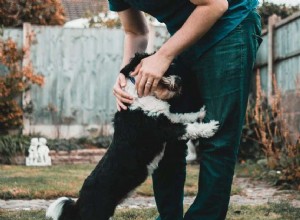
Zubní onemocnění je pro většinu kočkovitých šelem realitou. Podle odborníků jen asi 10 % koček prožije život, aniž by zažily nějaký druh zubního problému . Protože však kočky skvěle maskují příznaky, může být pro majitele náročné odhalit i ty nejmenší příznaky nepohodlí nebo bolesti u svých mazlíčků.
Zavedení správné dentální rutiny od raného věku je rozhodující pro trvalé zdraví a štěstí vašeho mazlíčka. Chrání nejen před nemocemi, jako je zánět dásní, ale také zlepšuje celkovou kvalitu života vaší kočky.
V tomto příspěvku mluvíme o důležitosti zubní péče pro kočky a nabízíme tipy pro optimalizaci.
Ano, stejně jako lidé, kočky jsou náchylné k onemocnění dásní, hromadění plaku, zápachu z úst a zubním abscesům . Bez péče o zuby to vše může vést k infekcím úst, onemocnění dásní nebo ztrátě a kazu zubů .
Tyto problémy jsou Onemocnění zubů postihuje 50 % až 90 % koček starších čtyř let . Poskytování vhodného krmiva a péče o zuby vašemu mazlíčkovi může pomoci v boji proti těmto problémům.
Může vám chvíli trvat, než si uvědomíte, že vaše kočka má problémy se zuby, protože kočky instinktivně skrývají své utrpení aby nevypadal zranitelný vůči predátorům. To zdůrazňuje potřebu zavést preventivní spíše než reaktivní zdravotní návyky pro vašeho mazlíčka, zejména s ohledem na ústní hygienu.
Osm z deseti koček starších tří let má problémy se zuby a dásněmi . Kočkovitým šelmám se často tvoří bakterie a plak na povrchu zubů v důsledku potravy, kterou jedí. Tato bakteriální vrstva nakonec ztvrdne na zubní kámen, který může dráždit dásně a vést u koček k zánětu dásní (běžně známému jako onemocnění dásní). V těžkých případech a možná ztráta zubů. Kočky často vyžadují extrakci zubů k úlevě od bolesti, když je nahromadění zubního kamene natolik závažné, že je neopravitelné.
Vaše kočka může mít potíže s jídlem nebo pitím, pokud je její ústa bolestivá nebo zanícená, a bakterie se mohou dokonce dostat do krevního oběhu a poškodit ledviny a další životně důležité orgány . Periodontální onemocnění, které je jedním z nejčastějších zdravotních stavů u domácích zvířat, postihuje odhadem 85 % koček starších šesti let, je charakterizováno postupným zhoršováním zubů, dásní a podpůrných tkání, které udržují zuby na místě.
Dobrou zprávou je, že většině případů onemocnění parodontu u koček lze předejít přijetím několika preventivních opatření k ochraně zdraví úst vašeho mazlíčka. To zahrnuje jak průběžnou domácí péči o chrup domácího mazlíčka, tak každoroční čištění zubů kočky u veterináře.
According to the American Animal Hospital Association (AAHA), cats should receive their first dental cleaning by the time they are one year old and once every year thereafter. Some cat breeds may require more frequent cleanings, particularly if they have shallow roots or crowded teeth. Older cats and indoor cats are also more susceptible to dental issues and may require more frequent cleanings.
Brushing your cat's teeth and gums on a daily basis (or at least three times a week) is essential for their oral health . It's a good idea to socialize kittens to this process while they’re young, because adult cats can be rather reluctant to have their teeth cleaned.
You should frequently examine the condition inside your cat’s mouth, even if they might not particularly appreciate the experience. If they appear to be highly agitated or if you find it impossible to carefully inspect their mouth, be sure to take your pet to the vet for regular oral exams.
The teeth of a healthy cat should be white and clean. Healthy kitten gums shouldn’t display any inflammation, redness, or bleeding. Inspect the rear of your pet’s mouth for sores, swelling, lesions, or ulcers, and ensure that their breath doesn’t smell bad.
Be sure to monitor your cat for these crucial warning signals between visits to the vet:
If you notice any of the above, it could indicate an illness in the cat’s mouth or elsewhere in the body. Continuous poor breath may be a sign of serious periodontal disease that has to be treated before the infection spreads to the heart, kidney, or liver through the cat’s bloodstream. It could also result in nutritional deficiencies if your cat develops food avoidance due to pain.

Be sure that you have all the necessary tools before starting your cat's teeth-brushing routine. Both pet shops and veterinary offices sell complete cat dentistry kits:
We have compiled this list of best products for cat dental care in consultation with expert veterinarians. We also looked to the American Animal Hospital Association's dental care recommendations as well as the Veterinary Oral Health Council (VOHC), an organization that oversees and certifies pet dental products.
The size of a cat's mouth makes it difficult to properly wash their teeth. That’s why the toothbrush you choose for your four-legged friend should be small, with soft bristles, and easy to maneuver in order to reach the back teeth, like the Virbac CET Pet Toothbrush.
The only cat toothpaste with a VOHC seal of approval is Healthymouth's topical gel. Instead of using a toothbrush, the manufacturer advises using the cotton-tipped applicators that come with the gel.
VOHC recommends the Healthymouth Topical Spray and Healthymouth Water Additive which comes in several different flavors. Other products that can be used as toothbrush alternatives include cat-safe dental wipes like the Essential Healthymouth's Anti-Plaque Daily Topical Wipes, which are not currently available for purchase.
Veterinary-formulated cat kibble is available from pet food manufacturers including Hill's Pet Nutrition and Royal Canin. This food kills oral germs and polishes a cat's teeth while it is being consumed. A veterinarian must issue a prescription for these foods.
VOHC recommends the following diets:
The VOHC recommends the following cat dental treats for the reduction of tartar:
Some experts claim that dental chew toys are not the best toothbrush alternative because of the fact that cats often don't chew on their toys and typically only use their canine teeth while hunting and playing. However, if you still decide to invest in such a toy, consider the Petstages Catnip Toy Dental Chews and the Orkakat Catnip Wiggle Worm Kitten Teething Toy.
It’s easy to care for your feline's oral hygiene if you introduce it while they’re young and make it a consistent part of your daily routine — but it’s never too late to get started if you haven’t already. Keep these tips in mind and consult your veterinarian for the best advice.
The best way to keep your cat’s teeth clean is with regular brushing . Daily toothbrushing is the gold standard in preventive dental care for cats, but make it a goal to do it every time you remember, and at least three times per week.
Many cats don't like having their lips touched, but patience and rewards — whether that may be treats, affection, or playtime with their favorite toy — might help ease them into the activity. And remember:the earlier, the better.
Note:Under no circumstances can cat teeth be cleaned with human toothpaste because many contain xylitol and large quantities of fluoride, which are both toxic to cats.
In addition to daily brushing, there are other steps you can take to keep your cat’s mouth clean, prevent bacterial infections, and promote their oral hygiene. From additives that you mix with water to supplements that get sprinkled on top of food , treats specially-formulated with enzymes , and prescription-grade food , you’ll have no shortage of options to choose between.
With respect to diets, most vets recommend feeding your cats a mixture of wet and dry food until they are older and can no longer tolerate kibble for optimal oral health. Wet food remains on the surface of teeth for longer, leading to the development of plaque and tartar, while dry food acts like a natural floss.
At your vet’s discretion, you might consider other natural cat dental care products to help keep your cat’s mouth in pristine condition. For example, some pet parents give their cats raw, uncooked bones as natural dental chews to break down tartar, but be sure to follow best practices for safe food handling whenever dealing with raw food.
In addition to brushing your pet’s teeth and the above-mentioned brushing alternatives, you can take other actions to ensure that your four-legged friend keeps their teeth clean and healthy.
Similar to people, giving cats a nutritious, balanced diet will reduce their risk of developing dental issues . Your vet can offer particular advice for a diet that can improve your cat’s oral health . In addition, take a look at the dental support diets above that have received the Veterinary Oral Health Council's seal of approval (VOHC).
Avoid giving your feline friend sweet treats . Even though sugar is not toxic to them, it has no nutritional benefit and can erode enamel, causing tooth decay and even dental disease.
Your cat has to get a dental checkup at least once a year, regardless of whether there are any signs of dental disease. Even though you should periodically examine your cat's teeth yourself, it is simple to overlook the kinds of warning signs of a disease that a skilled and knowledgeable veterinarian will spot. Compared to dental concerns that go undiagnosed and are allowed to worsen, dental issues that are discovered early are far simpler to address and resolve.
Most dental exams will include a professional cat teeth cleaning. Blood tests are first performed to see if the patient is healthy enough to be sedated. If so, your veterinarian will put them under anesthesia and start a thorough cleaning that includes a full oral exam, X-rays to spot issues below the gum line, a thorough cleaning below the gum line to prevent periodontal disease, professional scaling to remove plaque and tartar buildup on the crown, and polishing the teeth to avoid plaque and bacteria accumulation.
Your veterinary dentist may recommend oral surgery for cats with poor dental hygiene, especially in cases where the animal needs an operation to extract broken, impacted, decaying, or resorbing teeth .
Oral surgery and tooth extractions may seem intimidating, particularly for older cats, but they usually recover quickly and resume eating normally. The advantages of treating disease and killing bacteria in the mouth exceed the disadvantages of delaying necessary dental operations .
Search for a local veterinarian who offers dentistry to schedule your cat’s annual dental checkup and cleaning. You can also find affordable dental care for cats at veterinary schools and pop-up clinics in your area. In the event of an oral injury, such as a fractured tooth or puncture wound, an emergency animal hospital may be your best pet.
Do not take your cat anywhere that offers non-anesthetic dentisty for pets, as it is neither safe nor effective at treating dental disease.
Cat dental care costs around $20 to $50 for at-home supplies , but annual oral exams and teeth cleanings can cost upwards of $400 at a professional veterinary dentist. Prices increase significantly when dental issues are present. For instance, for a tooth extraction that involves anesthetic, X-rays, medicine, hospitalization, and surgery equipment, cat owners should budget for pet denal work to cost around $1,300 .
Pet insurance may help with these expenses . Pet insurance providers like ASPCA, Embrace, Pets Best, Healthy Paws, Prudent Pet, Nationwide, Spot, and Pumpkin offer complete coverage for cat dental care. Use Pawlicy Advisor to get quotes from these and other providers to find the perfect pet insurance plan that will help make it easier to choose affordable, high-quality dental care for your cat.

Vzít si domů svého prvního psa bude pravděpodobně jedním z nejvíce vzrušujících období vašeho života. Zde je pět tipů, jak dosáhnout úspěchu. Od hostující bloggerky, Julie Adams Vzít si svého prvního psa domů bude pravděpodobně jedním z nejvíce vzrušujících období vašeho života. Nejen, že jste to

Zdravé zuby a dásně jsou nezbytné pro všechna domácí zvířata, od žvýkání a jedení až po péči, obranu a čistý dech. Pouhými několika kroky mohou majitelé domácích mazlíčků udržet ústa svého mazlíčka zdravá a vyhnout se řadě nepříjemných a nebezpečných zdravotních problémů, které jsou důsledkem špatné